Private ‘pregnancy interrupters’ come under ‘unspoken pressure’
Tatarstan has become one of the first regions in which private clinics refuse to perform abortions
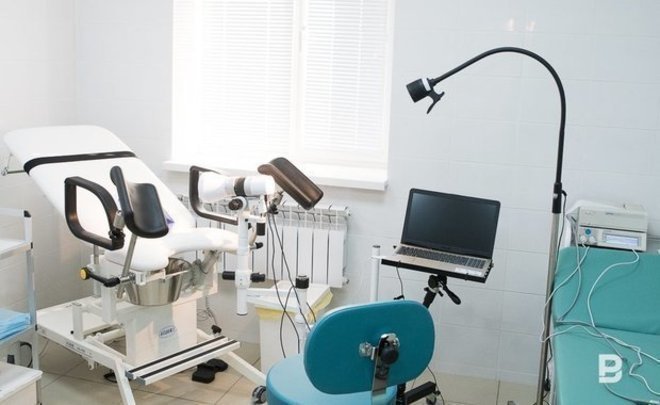
The federal law on state monopoly on abortions, initiated by Governor of Nizhny Novgorod Gleb Nikitin, may be adopted in the spring of 2024. It is possible that the State Duma will go further — now the idea of introducing criminal liability for inducing women to terminate pregnancy is being seriously discussed in Russia. Meanwhile, in Tatarstan, more and more private clinics are refusing to carry out this manipulation. Realnoe Vremya — about the “voluntary-compulsory” withdrawal of merchants from the market of these services, the real impact of the availability of abortions on demographics, and the prospects of excluding abortions from the list of medical services available under the Compulsory Health Insurance (CHI).
“Tatarstan became the first”
According to the Ministry of Healthcare of the Republic of Tatarstan, over the past three quarters of 2023, the number of private medical institutions offering abortion services in Tatarstan has decreased by at least a third. According to the latest published data, one in three of the 86 commercial clinics licensed for this manipulation refused it. In reality, there are more such clinics — some, while retaining the license, simply stopped providing the service itself.
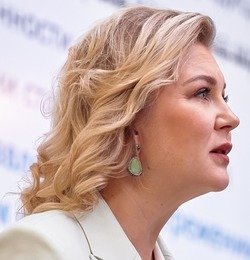
Volynets explained the need to consolidate the ban at the federal level by three equivalent reasons: concern for women's health, demography, and the need to reduce the number of substandard medical services.
“The profitability of this manipulation is negligible”

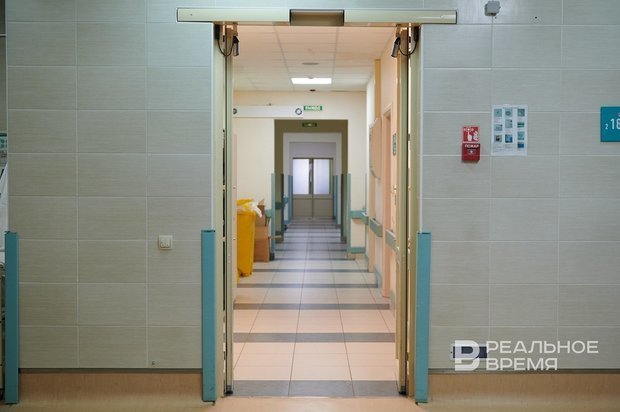
Urazmanov does not support plans to transfer the right to provide this type of medical services exclusively to state clinics and emphasises that it is not at all about the “greed” of merchants:
“The profitability of this manipulation is negligible, and the risk is gigantic, there may be complications. Statements that commercial organisations make a lot of money on abortions are a hoax, or they are made out of ignorance of the market. There is a market, and if you have a license, then you have the strength and means, there are specialists to provide this assistance, and you have the right to do it.”
And he categorically disagrees with the justification for tightening legislation in this area in the interests of demography:
“Abortions do not affect the state of the demographic curve in any way, it is a deep delusion to think that they worsen the demographic situation, in my opinion. A woman can be persuaded to refuse an abortion. But the percentage of such women will be low — and everyone is fighting for this small percentage now? But the number of abortions at different times may increase for one reason or another, and to reduce them, it is necessary to engage in education! And it is necessary to study not at the age of 16-17, but much earlier, so that certain things are put into the children's heads. It is necessary to tell about contraceptives and the consequences of abortion for health earlier! And if a girl gets into such a situation when it comes to abortion, it means that someone is doing it badly.”
“Education, not restrictions, will be more effective”
“What the law will be, this is what I will follow in my work," says the director of Labmed clinic, Ivan Iroshnikov. “At a meeting on demography (in the State Council of the Republic of Tatarstan — editor's note), I expressed my point of view on abortion. I believe that it is not restrictions that will be much more effective, but the education of young people in an appropriate way and social measures that will allow a woman to calmly raise children without regard to financial problems.”
According to Iroshnikov, the two main non-medical reasons for termination of pregnancy are the unwillingness of women to give birth to a child without a husband, “because it will interfere with getting married” and because the birth of a baby threatens with financial problems, “since at existing prices, there are not enough payments for anything, and even more so for a cloudless upbringing a child in financial terms”.
Based on his experience, he believes that there is a measure that can really convince a woman to abandon the previously made decision to terminate pregnancy and keep it without regard to the problems that will arise after an unplanned birth. And these are not restrictions and prohibitions at all:
“The requirement to show the fetus to the mother on ultrasound, in my opinion, works, and this has reduced the number of abortions by about 10 percent.
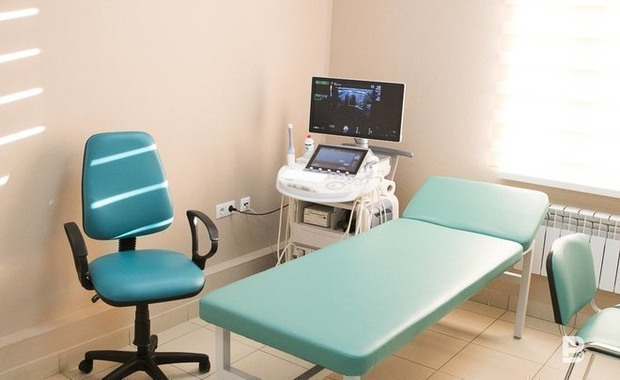
As for the exclusion of this service from the list of paid within the framework of compulsory medical insurance, the head of Labmed clinic firmly spoke in favour:
“I have never believed that abortion should be a free service, except in situations when it is done for medical reasons and is called otherwise — curettage. Curettage should be carried out within the compulsory medical insurance, but not an abortion, which a person goes to, wanting more comfort for herself. There are much more important things that are worth spending public funds on.”
“There is an unspoken pressure”
The chiefs of commercial medical institutions are extremely reluctant to talk about the prospects of taking away their right to provide abortion services. Only on condition of anonymity, the owner of a private clinic in Kazan, which is currently providing them, agreed to speak out.
“There is an unspoken pressure of institutions that carry out this manipulation, there is an unspoken regulation — all possible measures are used, barriers are set up to increase the birth rate. I would not like to discuss this, it may have negative consequences for business.”

He also noted that claims to the quality of merchants' services, which are now often used as an additional argument in favour of taking away this area of business, are untenable:
“In a private institution, termination of pregnancy is carried out in more comfortable conditions, and doctors have a lower workload, therefore, they can devote more time and attention to the patient. In public clinics, doctors deal with a large flow of patients — with all the consequences.
“Rejection of abortions has minimal impact on demographics”
The opposite opinion was expressed by Rostislav Tuishev, an expert of Realnoe Vremya, Honoured Doctor of Russia and the Republic of Tatarstan, Academician of the Russian Academy of Medical Sciences, laureate of the State Prize of the Republic of Tatarstan in the field of science and technology :

Tuishev claims that “private companies, of which we now have more than 2,000 in the republic, are less controlled, the greatest number of both errors and unnecessary medical manipulations are allowed there”:
“It is impossible to monitor every private institution, they are not accountable to the Ministry of Healthcare, and you can get the right to check only if a catastrophe happens — and why do we need it? Our doctors, getting from public clinics to private ones, quickly understand the difference between public and private medicine, which has other goals and other tasks. For the sake of women's well-being, their health, and not for the sake of demography, I am in favour of abortion being carried out only in state clinics.”
At the same time, Rostislav Tuishev dismissed the “demographic component” as an argument for tightening the law regarding abortion:
“Rejection of abortions has minimal impact on demography, as well as infant mortality. Rejection is a question of qualification of society itself as a social structure.”
He spoke out in favour of paid abortions:
“Abortion, especially without medical indications, is not the most important event that the state should take on its shoulders and pay for. It's like a toll road — you can do without it, or you can pay and get a number of amenities.
A costly affair?
Irina Volynets expressed support for both reducing the period for which artificial termination of pregnancy is possible — from 12 to 8 weeks, as well as for excluding this medical service from the number provided under the compulsory medical insurance:
“This manipulation can be free only if it is carried out for medical reasons — if a life-threatening situation has been created for a woman, or a child has been diagnosed with pathologies incompatible with life, or pregnancy becomes a consequence of violence against a woman. In other cases, it turns out that we, taxpayers, collectively pay for the murder of unborn children. Besides, women who have had an abortion are more likely to go for IVF, the cost of which today is about 200 thousand rubles, are more susceptible to various diseases. Requiring expensive treatment, which is also paid for by taxpayers.”
To the question of Realnoe Vremya, whether such changes in legislation threaten an increase in the number of criminal abortions, the Children's Ombudsman replied:
“There is no such norm in the law. Now abortions are performed at a later date, up to the expected birth of a child, and the doctor is not criminally responsible for this, except in cases when serious harm has been done to the woman's health or she has died. In this case, the doctor will be punished for providing medical services of inadequate quality — this is the maximum. In my opinion, this also needs to be regulated.

In a conversation with Irina Volynets, Realnoe Vremya reminded that an alternative to an abortion that has become inaccessible can be a crime.
“Tell me at least one reason why a woman will kill her child, which she does not want, if she can give it up without any consequences," Irina Volynets objected. “We have a waiting list for adoption of newborns for 10 years, they don't even get into an orphanage!”
“However, in February 2015, Kazan residents were shocked by a terrible incident: a 23-year-old native of Uzbekistan gave birth to a girl at home and, putting her in a bag, left this bag hanging on the fence of the city hospital No. 7. The child froze to death. A year later, a package with a newborn girl was found on Safiullina Street — it was in the summer, she remained alive. In 2017, the body of a dead newborn boy was found in a dumpster on Gabisheva Street. In April 2023, a box with the bodies of two babies was found lightly covered with earth in a forest belt in Yudino. This is not all cases in recent years when unwanted children in the capital of Tatarstan were disposed of in such a fanatical way.”
“There is always some percentage of such women, and they have been at all times. This may be due to internal experiences, mental abnormalities…
“But it happens when a woman simply does not want to pay alimony, which she faces if she refuses the child…"
“Well, as a rule, unlike fathers who defaulted on alimony, the state is quite loyal to them. In addition, within six months, the mother can recover her rights. And a contract is signed with potential adoptive parents in Tatarstan, according to which they are obliged to adopt a child, which saves the woman who gave birth to the child from paying alimony.
“It is necessary to make sure that the birth of a child brings wealth to the family”
To assess how relevant the topic of changing federal legislation regarding the restriction of abortions is, Realnoe Vremya sent a request to the Ministry of Healthcare of the Republic of Tatarstan about how many abortions of pregnancy for non-medical reasons were performed in Tatarstan in 2022 and since the beginning of 2023, as well as how many private clinics have refused licenses for carrying out this type of manipulation. We have not received a direct answer.
“Since 2023, a motivational questionnaire has been introduced into the mandatory procedure (along with observing the “period of silence”, which is provided to a woman in a situation of reproductive choice for making an informed decision about pregnancy and undergoing pre-abortion counselling) in medical institutions of state and other forms of ownership, which is carried out to identify the reproductive attitudes of women who have applied for medical services for termination of pregnancy," it reported in the ministry. “As of November 1, 2023, motivational questionnaires are conducted in 62 medical organisations of state and 27 non-state forms of ownership.”
But from the information provided by the Ministry of Healthcare, it can be concluded that the termination of pregnancy at the request of a woman is now carried out only in 27 non-state clinics.
And the former minister of healthcare of the Republic of Tatarstan, State Duma deputy from Tatarstan, Ayrat Farrakhov, in a conversation with Realnoe Vremya, clarified that the issue of whether a legal or civil husband should also participate in the decision to terminate a pregnancy is being discussed, but we are not talking about situations where a woman who made such a decision is not married:

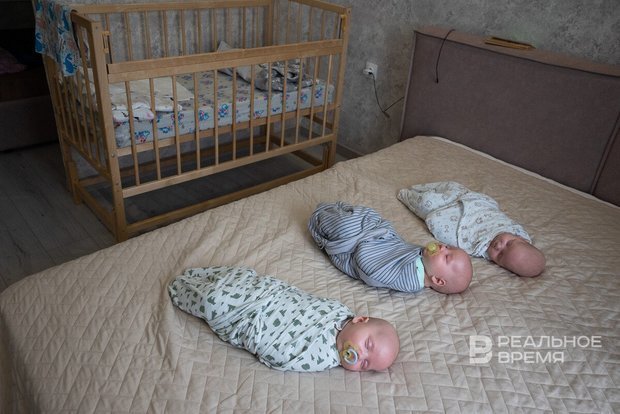
To the question of what the legislative reduction of the decision-making period on pregnancy termination from 12 weeks to 8 could turn into, given the fact that women who have firmly decided not to give birth in the near future may find out about their pregnancy too late, Ayrat Farrakhov replied:
“I am not an obstetrician-gynecologist, so I think that, answering this question, you should, first of all, consult with specialists. But the first thing that comes to mind is that if a person makes a fundamental decision for herself, she, unfortunately, will use not a hospital institution licensed for such services, but a service that does not meet safety requirements. And, unfortunately, today's liberal legislation has made it possible to exclude the topic such as criminal abortion and maternal mortality from criminal abortions. Unfortunately, it is common the the countries where there are such restrictions.”